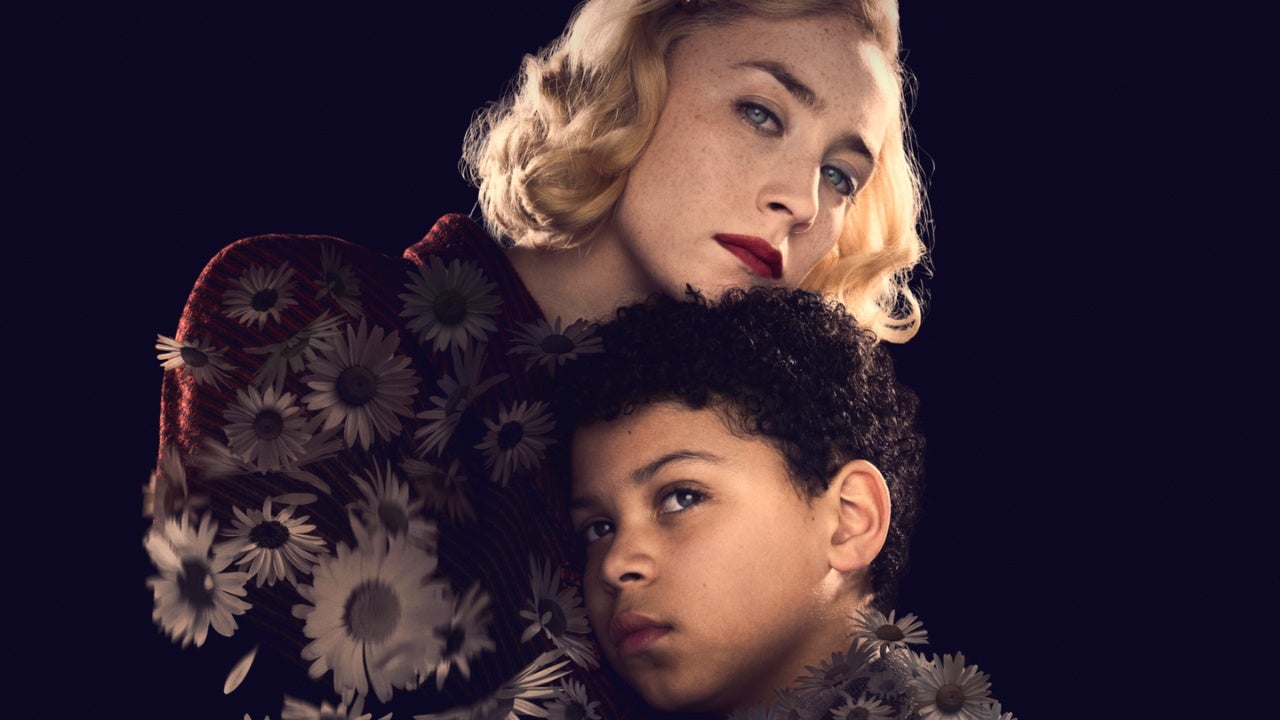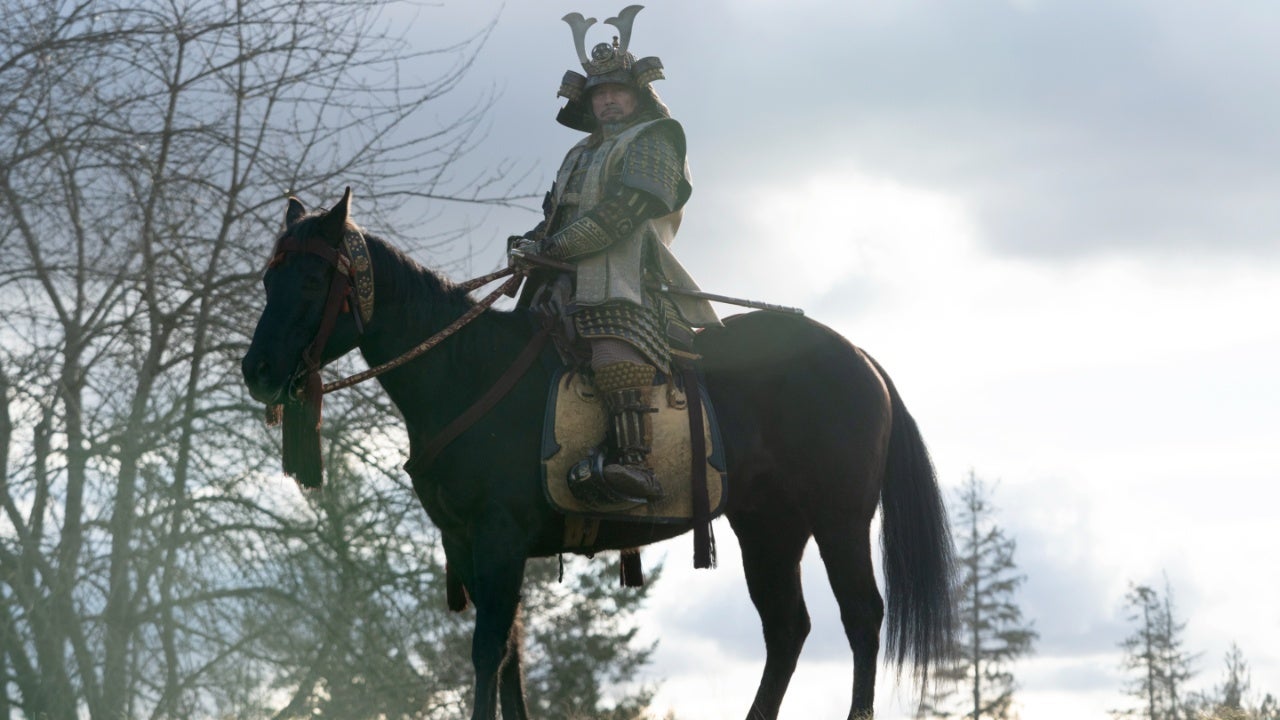Blitz opens in theaters November 1 and streams on Apple TV+ beginning November 22. This review is based on a screening at the 62nd New York Film Festival.
There are moments during Blitz when falling bombs scream through the air, and explosions threaten to pierce your eardrums. Director Steve McQueen recreates these high-pitched echoes during less dangerous but equally cacophonous scenes, like that of 10-year-old George (Elliott Heffernan) being evacuated by a screeching train with hundreds of other children whose parents have made the difficult decision to send them away from London amid an unceasing aerial assault from Nazi Germany. The threat of war is ever present, and the acoustic flourishes surrounding George's story effectively disorient and displease the senses. However, that story itself isn't nearly as intriguing as it should be, and gradually reveals the numerous flaws in Blitz's script, as well as its visual approach.
The tale of a biracial boy separated from his white, single mother, Rita (Saoirse Ronan), during the London blitzkrieg of 1940 and 1941, Blitz features strong performances in service of a strangely scattered script. As it weaves together George’s attempts to return home and scenes of Rita toiling away at an ammunition factory, its approach to time and place varies wildly from scene to scene. Simultaneously, its view of racial history becomes oddly saccharine for a film about wartime horrors in which the main character’s father, Grenadian immigrant Marcus (CJ Beckford), disappeared after being brutalized by a mob of bigots. Then again, Blitz is also among the most bloodless depictions of World War II in recent memory, despite its thundering sounds, enormous sets, and numerous scenes of encroaching danger. These are thrilling on occasion, but they seldom yield visceral, gut-churning payoffs.
There's a surprising wistfulness to Blitz, especially in scenes told through George's eyes. These feel less like images of innocence lost, and more like attempts to hold on to that innocence in some fashion: The broad, melodramatic dialogue helps paint George as a kid with moxie, ready to take on bullies after some advice from his thoughtful grandfather, Gerald (musician Paul Weller, delivering a tremendous but underutilized performance in his big-screen debut). The other kids he meets on the train out of London – and on the perilous journey back, once he jumps off his carriage – are just as spirited, which makes for a devastating irony when violence comes their way. However, this is less the result of human cruelty and more the outcome of random happenstance, as though the universe around George were chaotic for everyday reasons that have nothing to do with a world war.
Upon returning to London, he meets a Nigerian soldier, Ife (Benjamin Clementine), who takes him under his wing, and promises to guide him home after his rounds. Ife all but becomes a fleeting father-figure in Marcus’ absence, but this passage through London's underground proves especially baffling. As people of various ethnicities take shelter in close quarters, racist tensions briefly arise. Ife, whose country would remain a Crown colony until 1960, ends up being the one to quell this agitation with "Kumbaya" speeches about British togetherness, and not giving in to "exactly what Hitler wants," as though racism were a uniquely German export and not one also manufactured at home and abroad by the dwindling empire he serves.
This turns George's journey home into a head-scratching exercise at times. He puts up with rudeness from white strangers, but that's usually the extent of the film's approach. In one moment, he claims to be unsure of his own Blackness (as a child raised in a white household), but gazing up at a Black man in uniform for an evening is enough to reorient the way he speaks about his place in the world – though not necessarily the way he feels about it, or how he sees himself. In Small Axe, McQueen’s five-film exploration of the West Indian diaspora in London during the mid-to-late 20th century, racial identity was deeply entangled with the city’s social fabric. In Blitz, it's usually reduced to words, rather than the way someone moves (or is forced to move) through their environment – despite this being a film entirely focused on movement from one place to the next.
It’s much harder to track Rita’s trajectory after she drops George off at the station. This evacuation is difficult for both mother and son, but her scenes with her fellow factory workers shortly thereafter hint at days or weeks having passed, as she gradually buries the emotions involved with having to abandon George for his own safety. Blitz's timeline clicks doesn’t click into place until she mentions, late into the movie, that she dropped George off that very same morning. It ought to be self-evident, but the film has little emotional consistency, and Ronan's performance, perhaps, features too many ebbs and flows for a character who still ought to be reeling from a single event. It certainly doesn't help that the homogenous approach to shooting each scene (and washing it with gaslight) makes the transitions to and from flashbacks and to segues and non sequiturs just as disorienting as any snippets of war we see – and not disorienting in the Dunkirk sense, where temporal dissonance (rather than dramatic clarity) is the point. The characters always know when and where they are, but as soon as a scene transitions, it can be difficult for us to parse this information, and thus, tough to discern Blitz's emotions.
There are several aptly nightmarish sequences, like the flooding of a tube station whose execution takes a page out of Titanic's book. But these moments quickly come to a close without letting their tensions reach fever pitch. They also work best in the dark, when McQueen's observational approach allows the details to be hidden in shadow. In the daylight, buildings torn apart by air raids are elaborate in their staging, but given the seemingly limited casualties on display, they feel more like expansive (and expensive) sets than real places. One can certainly intuit the loss of life involved; in reality, an estimated 40,000 civilians were killed during the ceaseless bombardment. However, the loss in Blitz rarely feels human, and its attempt to contrast Hitler’s hateful rhetoric with a more restrained British racism on the ground yields a particularly sloppy and ahistorical view of the period setting.












